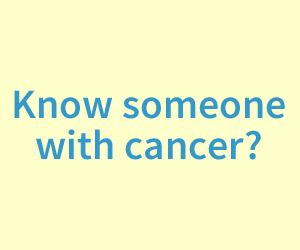| Principle / reason |
Strategy |
| Get enough high quality protein |
- A quick internet search and you'll find tons of sites promoting the idea of going vegetarian if you have cancer. I did a lot of research on this and consulted dietitians and doctors. I finally came to the conclusion that cancer patients must get large amounts of protein. Fail to do so and you risk muscle tissue breakdown due to the nature of cancer itself. The key is get high quality protein that's free of pesticides and hormones.
- Drink 2 cups of high quality whey protein. Cancer patients have impaired digestion. Whey protein is easily digested. Make sure it's high quality and non-denatured.
- Eat grass-fed organic beef to avoid hormones and pesticides. Grass-fed beef also is a rich source of omega-3 fatty acids.
- Eat fatty fish like Salmon. Try to procure wild-caught varieties instead of farm-raised. Don't overdo it on the fish because of the mercury.
- Eat some poultry like turkey and chicken. Go for organic ones. You definitely want to avoid the hormones and pesticides in conventionally raised poultry.
|
| Vegetables/juices |
- Fresh vegetable juices are the best option in my mind. They have the best mix of active nutrients that no powder mix can reproduce.
- Vegetables and vege juices have a tremendous amount of good nutrients, anti-oxidants etc. Also, chemotherapy, radiation etc deplete cellular nutrients and cause electrolyte imbalances. Vegetables and vegetable juices are a very good source of electrolytes like potassium.
- You may want to research Max Gerson's juice formula and invest in a good juicer such as a masticating Samson juicer. Avoid the cheap centrifugal ones like Juiceman. They are much harder to clean, break down much faster, extract less juice and most importantly, they spin much faster, generating heat that can denature nutrients such as enzymes and vitamins.
- Buy organic vegetables as far as possible. Your body needs all it's strength to fight the cancer and heal from chemo/radiation. You don't want to tax it unnecessarily with pesticides from conventionals.
- Some immuno-compromised patients should not risk raw vegetable or juices. Furthermore, juicing is a lot of work. In such cases, go for a high quality vegetable powder mix. For example, Nanogreens (which is typically purchased through nutritionists and other such practitioners). Make sure the product guarantees low bacterial content.
|
|
Avoid sugar
|
- Cancer cells uptake sugar at a much faster rate than normal cells. They metabolise it to grow. (PET scans take advantage of this characteristic)
- You should avoid sugar as much as possible. I'm talking about foods that have sugar and little of anything else. Obviously you can't avoid it totally. The point is to go for nutrient-rich food, and not sugar-rich foods.
- Avoid drinks like Ensure. They are primarily sugar. If you're finding it hard to eat because of radiation damage to your throat etc, buy a Vitamix and liquify your high quality foods. If you MUST resort to a ready-made liquid drink, go for the diabetic alternatives to Ensure such as Glucerna. They have a lower sugar/good-nutrient ratio.
- Fruit is good for you. However, fruit juice has a tremendous amount of sugar. So stick with actual fruit. However, if you're immuno-compromised, be VERY CAREFUL with raw fruit. You may want to consider canned equivalents. Obviously not as nutritious but better than nothing. Alternatively, you can cook your fruit.
|
| Keep your bowels moving |
- You want to keep your bowels moving. You need to constantly remove toxins, pollutants from your GI system as any healthy person would. This is even more crucial if you're doing chemo.
- If you constipate, you risk hemmoroids, anal fissures etc. Those can be major irritations or down right dangerous if you're neutropenic. So keep your stool soft by eating a healthy amount of good fiber. Canned fruit like pears are good. Prune juice is good. Again, if you're already neutropenic, make sure these are pasteurized.
- If you're desperate and are willing to take sides on the whether it's OK to take large amounts of Vitamin C during chemo, you can try taking 3-4 grams of Vitamin C powder (Sodium Ascorbate etc). Start with 1 or 2 grams and increase gradually until you start getting soft stools. Magnesium supplements also cause this. Check with your oncologist first and be informed about the effects of these two supplements before taking them.
|
| Support your digestion |
- For various reasons, cancer patients often have poor digestion and absorption. This may be caused by direct treatment to the digestive tract (radiation/surgery etc), or it may be caused by chemo. Chemo attacks fast-growing cells - including the lining of your digestive tract.
- Take a high quality digestive enzyme - for example Vitalzyme. These enzymes basically help break down the food in your stomach. During your time of trial, you need all the support you can. There's a well-known product called Wobenzyme out there. However, it has animal derivatives. I prefer a fully vegetarian product. Some cancers don't respond well to pig products such as pancreatin.
- Besides assisting digestion, some of these products (Vitalzyme included), claim to actually help your body fight the cancer itself. In order to achieve this, you're supposed to take the enzyme away from meals, instead of before meals. Most doctors remain skeptical that digestive enzymes can get into your blood stream. The proponents believe it can. I say use them with meals at the very least, cos you need all the support you can.
- In addition to digestive enzymes, take a high quality probiotic to replenish good bacteria in your gut. The principle is the same as eating good quality yogurt. My research convinced me that most yogurt products don't do a lot of good because the cultures are destroyed by stomach acid. High quality probiotics such as Culturelle (from Longs or Walgreens) or TherBiotic Complete (from practitioners) have ways of getting the bacteria past your acidic gut into your intestines. Look in this for yourself.
- Be a little cautious with probiotics if you're immuno-compromised. There are obscure claims out there that even good bacteria can overgrow and cause infections for immuno-compromised. While probiotics are good in restoring the balance in your gut, you probably don't want to overdo it. Start with small doses and when your gut feels good, stop supplementing. Use just enough.
- The bottom line: weakened GI systems require support. Digestive enzymes and probiotics will help.
|
| Sunshine, exercise and Vitamin D |
- Don't say i didn't warn you. Cancer patients are often fatigued and tempted to sit/lie down the whole day. CONVINCE YOURSELF to get enough physical activity. I'm talking about taking 2-3 twenty minute walks around the block a day. Recent research supports this. Physical activity will help stabilize your GI system, improve blood circulation (for chemo to do it's thing, as well as for your blood to detoxify from the chemo, and also for your immune system to circulate fully to kill cancer cells).
- That said, you don't want to push yourself too much. It's a fine balance. But the principle is be DISCIPLINED in getting regular physical activity. Don't hold a pity party and wallow in front of the TV. It's not going to do you any good.
- Sunshine and Vitamin D - read the articles on this site on Vitamin D. In summary, there is TON of evidence out there implicating Vitamin D deficiency and cancer, not to mention a host of other diseases. Get your Vitamin D levels checked. Supplement to bring it up but get checked regularly. If your doc refuses to do it, find an ND (Naturopathic Doctor) or nutritionally focused MD who will. Last resort you can buy a test from Life Extension online, though I'm not sure how reliable the Labcorp tests they sell are. (I've heard they might not be as accurate).
- Bottom line on sunshine - I'm not convinced Vitamin D supplements are a perfect substitute for sunshine. I would get plenty of both if I could, while regularly checking D levels.
|
| Fight metastasis |
Look into the following supplements that have research papers backing up their claims in fighting metastasis:
- Coriolus Versicolor (PSP in China or PSK in Japan)
- Maitake D-Fraction
- Modified Citrus Pectin
|
| Other supplements |
- Consider taking a good high quality multi-vitamin. Most oncologists will support this idea. However, what's "good". In general, there's an ongoing debate on whether anti-oxidants are good for cancer patients. Most conventional oncologists will say no. However, most conventional docs take this position out of fear or ignorance. Dr. Ralph Moss who used to be at Sloan-Kettering and now runs a cancer newsletter / advisory service, will be quick to point out to you that Mesna (a drug used to prevent bladder cystisis due to Ifosfamide), is a powerful anti-oxidant - and yet it's freely prescribed. Dr. Moss is on the side of taking anti-oxidants for support during radiation and chemo. You need to consider both sides and decide whether you're going to go for anti-oxidants.
- Google for Dr. Prasad Kedar. You'll find he's moved from academia to a Premier Micronutrients. They are for anti-oxidant use during chemo. He's a proponent of high dose Vitamin A and C with fair amounts of Vitamin E (succinate - very important), along with some other minerals. That company sells a product in capsule form.
- Immunocal - A product made by a multi-level marketing company that has "real research" claiming to support cancer patients through chemo. Their scientists are mainly from McGill university in Canada. MLMs are pretty sleazy in general but this one has published research. Their product is expensive.
- Look into Curcumin, EGCG (Green Tea Extract), Quercetin. These supplements all claim to have anti-cancer activity.
|



